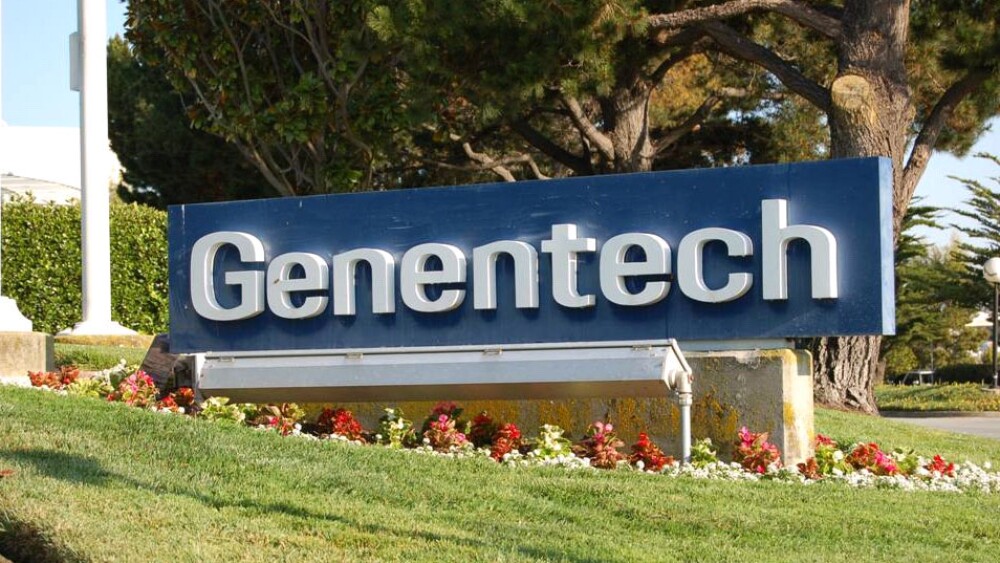September 1, 2016
By Mark Terry, BioSpace.com Breaking News Staff
South San Francisco-based Genentech released positive results today from its Phase III clinical trial of Tecentriq in locally advanced or metastatic non-small cell lung cancer (NSCLC).
Tecentriq (atezolizumab) is a monoclonal antibody that binds with the protein PD-L1, blocking interactions with both PD-1 and B7.1 receptors. This appears to help activate T cells, preventing the cancer cells from “hiding” from the immune system. Tecentriq is the first and only anti-PD-L1 immuno-oncology treatment approved by the U.S. Food and Drug Administration (FDA) to date.
The OAK Phase III trial was a global, multicenter, open-label, randomized, controlled study involving 1,225 patients. The primary result was the study showed a statistically significant and clinically meaningful improvement in overall survival (OS) in comparison to docetaxel chemotherapy. Secondary endpoints evaluated included objective response rate (ORR), progression-free survival (PFS), duration of response (DOR) and the drug’s safety.
“These results add to the growing body of evidence that supports the role of Tecentriq as a potential new treatment for specific types of advanced NSCLC,” said Sandra Horning, Genentech’s chief medical officer and head of Global Product Development, in a statement. “This is very encouraging news for people living with this disease because lung cancer is the leading cause of cancer deaths around the world. We hope to bring this treatment option to patients as soon as possible.”
The FDA granted Genentech a Biologics License Application (BLA) for NSCLC and Priority Review, with an action date of Oct. 19, 2016.
In addition to this study, the company has another eight Phase III trials of Tecentriq alone or in combination in patients with various types of lung cancer.
The company plans to present the complete study data at a medical meeting before the end of the year.
The drug is currently approved by the FDA to treat patients with locally advanced or metastatic urothelial carcinoma when the disease has progressed during or after platinum-based chemotherapy. Or, to treat those patients within 12 months of receiving that therapy, whether prior to or after surgery.
The recent study’s priority review by the FDA is based on previous clinical trials, as well as the Phase II BIRCH trial. In that study, patient responses were observed in up to 27 percent of patients previously treated with NSCLC who showed the highest levels of PD-L1 expression. One of the aspects of the new trial was that survival benefits were seen no matter what the PD-L1 status was. The drug’s safety profile was also consistent with previous studies. The most common advertise events (AE) were fatigue and nausea.
The PD-L1 levels were evaluated using Roche ’s investigational IHC test. The company utilized an IHC score of TC2/3 or IC2/3 as guidelines for inclusion. Patients received 1200 mg IV of the drug every three weeks as frontline therapy.
Tencentriq is being evaluated in a number of different combinations, as well. In May, Genentech inked a deal with Kite Pharma to evaluate Tecentriq with Kite’s KTE-C19 in refractory, aggressive non-Hodgkin lymphoma (NHL).
“The way to get to the 70 percent to 80 percent of the patients that are not responding to single-agent immunotherapy is through scientifically rationally based combinations,” Daniel O’Day, Roche’s chief executive officer, said in an American Society of Clinical Oncology (ASCO) conference call in June. “Since we sat here last year, we more than doubled the number of combinations that we have. We have more than 50 trials going on. More than 30 of those are combination trials and that number is already outdated as we speak.”





